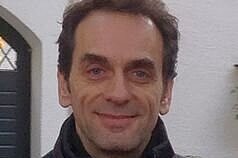Colloquium: Astrometry on board a CubeSat

This space engineering talk addresses the serious concern of Attitude Determination and Control Systems (ADCS) for nanosatellites in the NewSpace sector. ADCS is frequently offered as a Commercial-Off-The-Shelves (COTS) system. However, while ADCS is expensive and critical for the missions, its behavior after integration in the platform is poorly tested on ground and in flight. We develop a technique with CubeSat hardware to commission the ADCS in flight: although the sensitivity of nanosatellite imagers is limited, we can characterize the accuracy and the stability of the platform in detail. This talk presents our experiment with OPS-SAT, a CubeSat operated by the European Space Agency (ESA) until its re-entry in May 2024, at assessing its pointing accuracy and stability from images of stars taken on board. The imager and the ADCS are typical NewSpace COTS. The imager is directed to the $-Z$ longitudinal axis, while a Star Tracker points in the $(X,Y)$ plane. Nadir pointing proved satisfactory for Earth imaging. However, the inertial pointing (i.e. to the dark sky) appeared imprecise and unstable. Multiple sequences were tested to improve the operations. In parallel, images were taken and our algorithm was tested to extract information from the faint stars seen in the images. It allowed the quantification of APE (Absolute Pointing Error) and AKE (Attitude Knowledge Error). Although the stars were very faint because the instability spreads their light over tens of pixels, they were eventually detected. The processing is complex and was partially manual, but it shows a great potential for direct and intensive on-board measurement, to assess the performance of the ADCS during in-flight commissioning, and later to serve as an "object tracker" (e.g. to locate a debris) or a deep space navigation sensor. The initial experience gained by CENSUS at Paris Observatory | PSL with OPS-SAT has been the subject of a PhD Thesis to generalize this approach in the NewSpace.